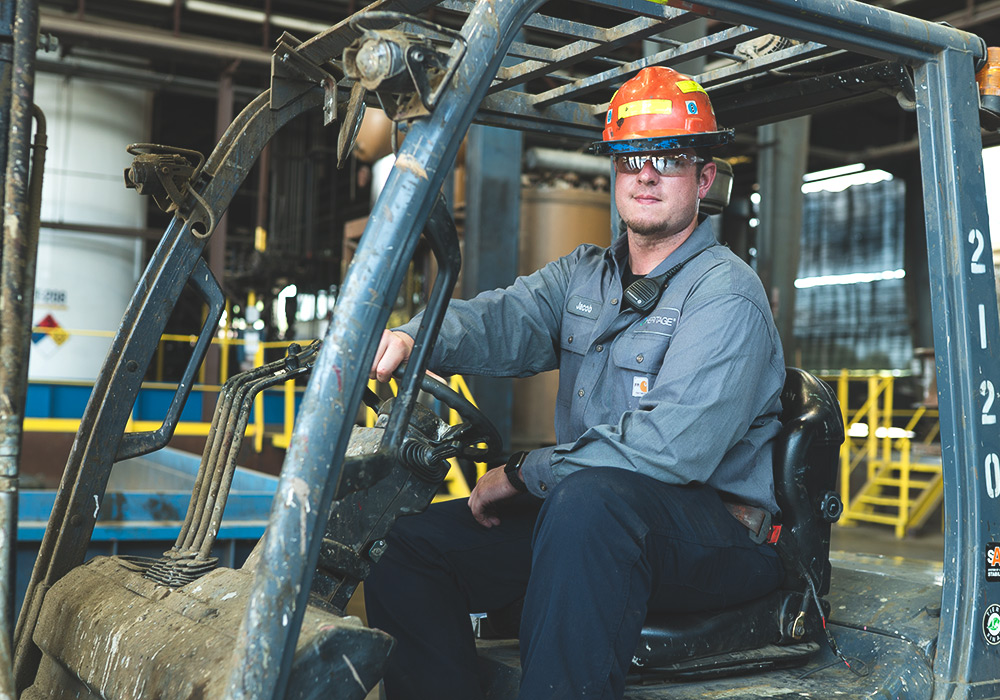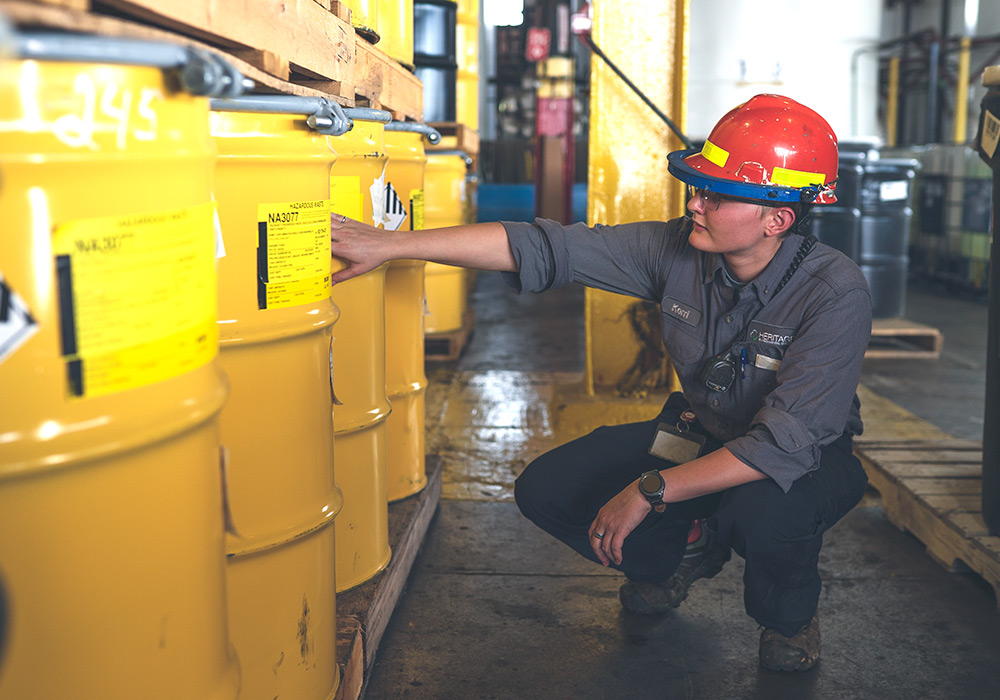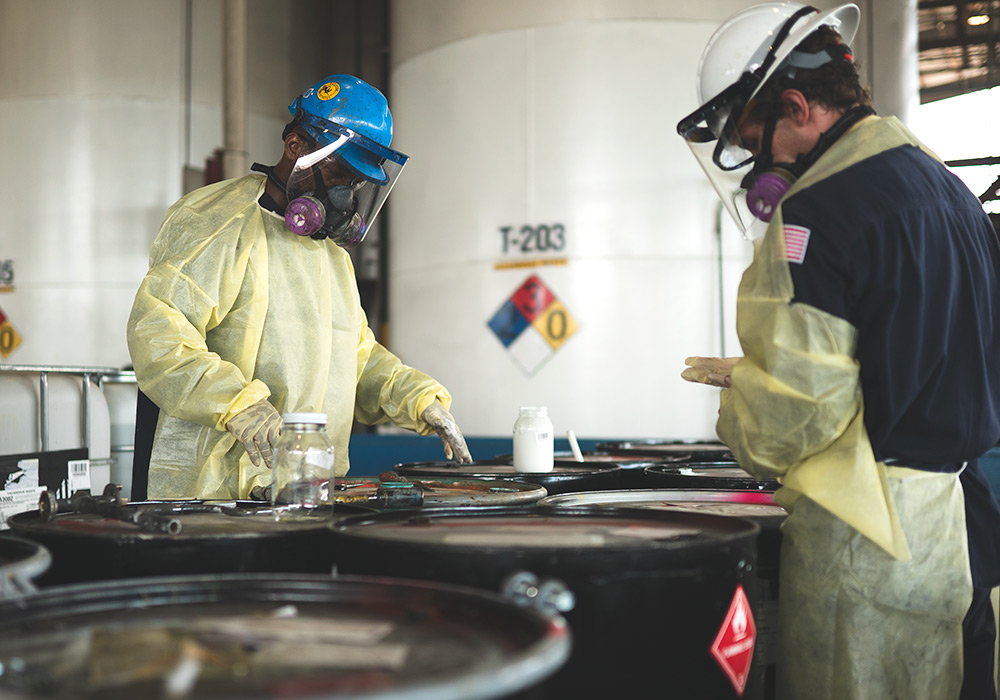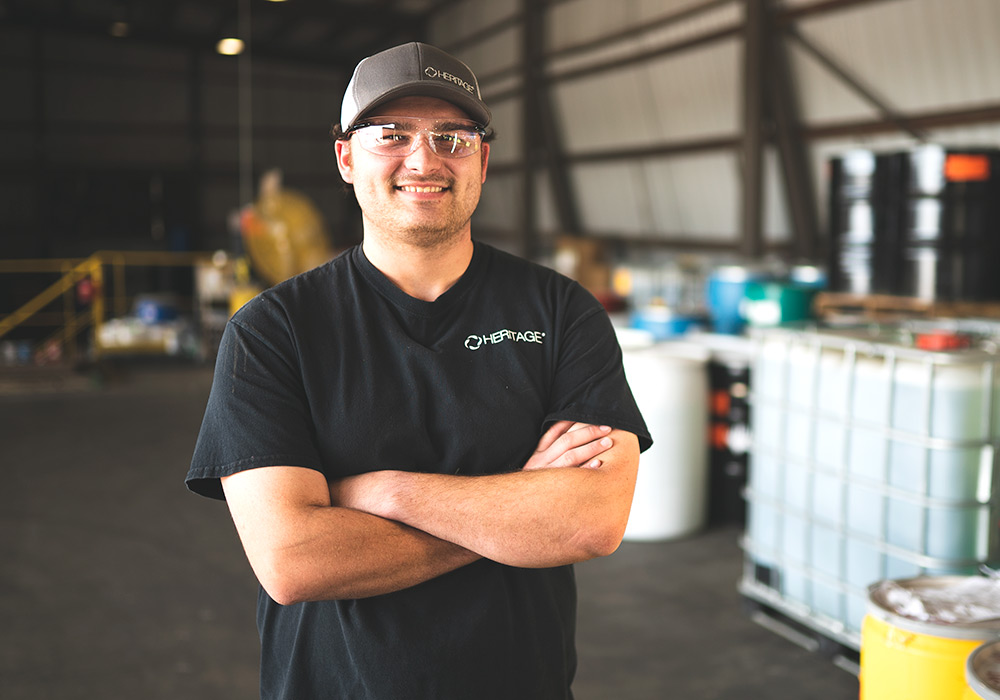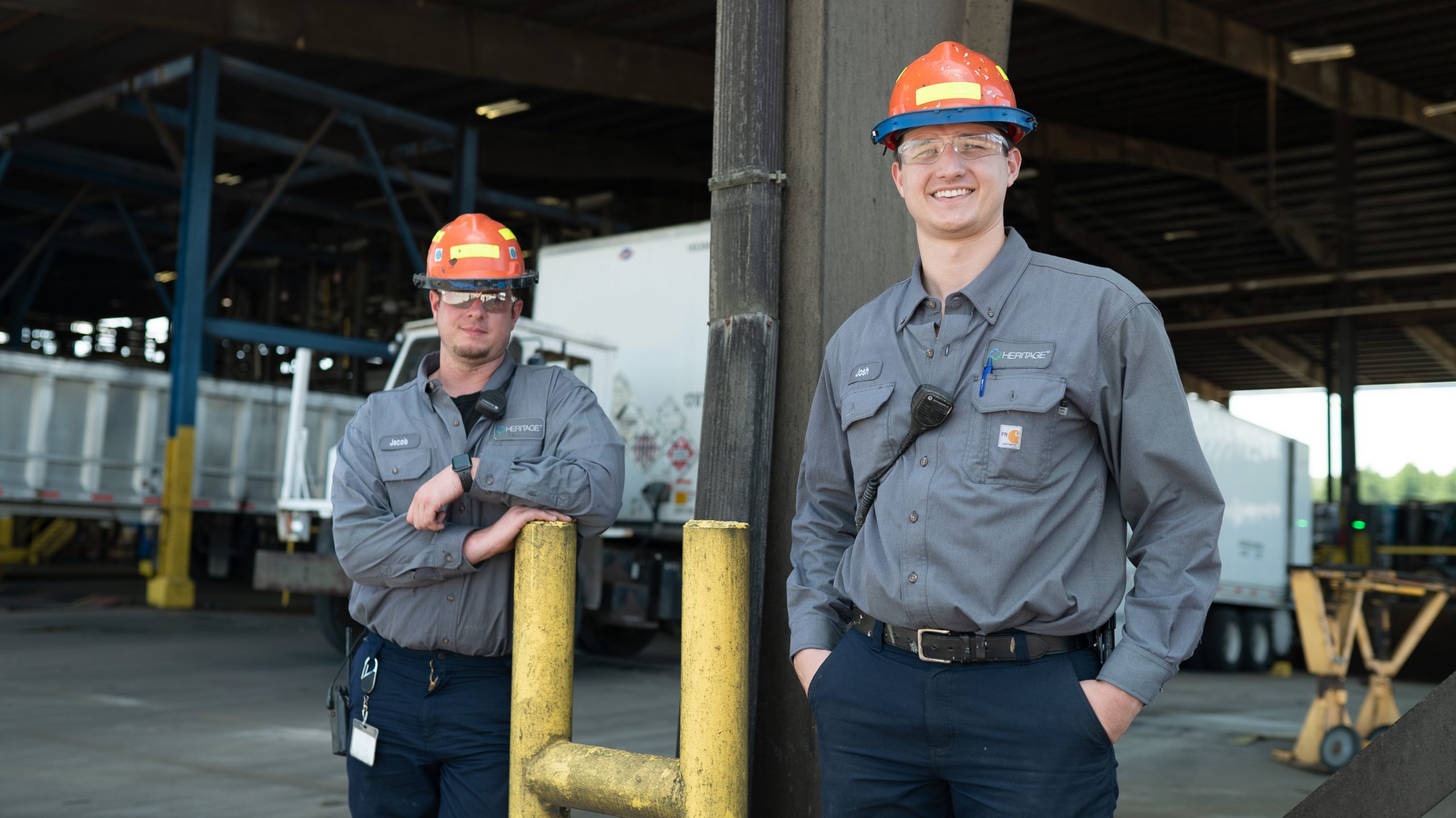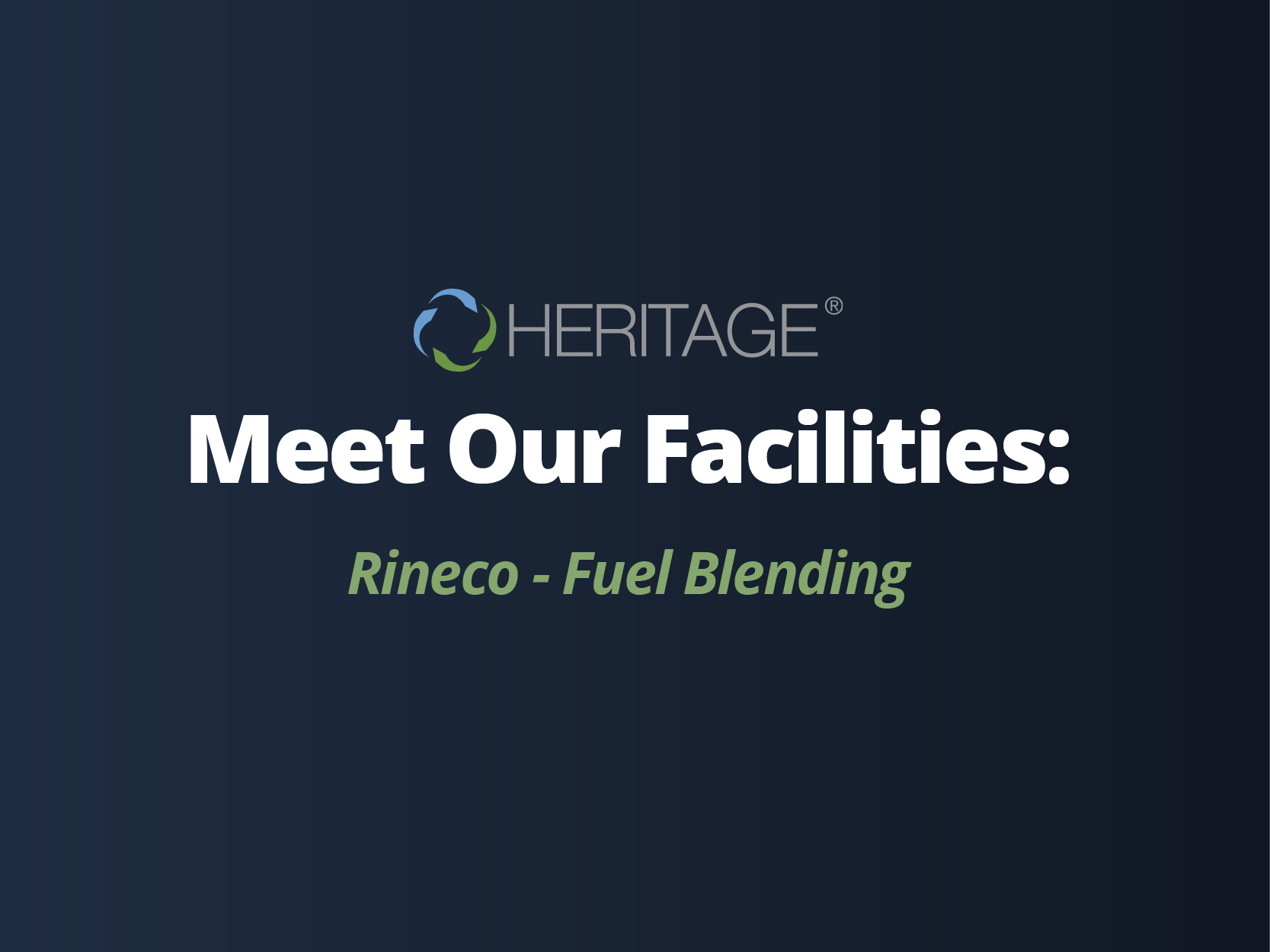How We Do It
North America’s Largest Single-Site Fuel Blending Provider
Once your wastes are sampled and screened for conformity with our easy-to-use profile, our knowledgeable operations staff processes the material into liquid and solid waste-derived fuels, which are used as secondary fuel sources to replace coal and natural gas in cement kilns. This method is a safe and effective option for recovering the energy value of the waste, and it helps conserve our planet’s finite natural resources.
Sampling & Tracking
To ensure absolute compliance, the philosophy behind Heritage’s internal tracking system is the same “cradle to grave” concept as RCRA. After waste material arrives at our fuels blending facility in Benton, Arkansas, samples are then analyzed to ensure conformity with the profile and identified via an individual bar code identification label. Each label tracks a specific container throughout the blending process and allows us to document the final disposal destination of your material.
Disposal Guarantee
Waste is normally processed and destroyed within 5-6 days of receipt. Your liabilities are greatly minimized by our urgent processing philosophy. This service is unprecedented in our industry. A Certificate of Disposal is issued once the blending process is complete. RCRA empty metal containers are processed through our Container Decontamination Unit (CDU). Once the container is processed, you will receive a Certificate of Recycling for the number of containers and pounds of metal recycled.
Our Impact
Our unique bar code system provides visibility to your waste from cradle to grave.
Interested in Turning Waste into Fuel?-

Industry leader turning your waste into fuel in ~6 days.
-

Savings from both the economic and ecological points of view.
Our Commitment
The reuse of industrial wastes in cement kilns is an environmentally sound option for recycling waste and conserving natural resources.
Nearly 20 cement kilns throughout the U.S. utilize regulated waste as supplemental fuel. To use this material as a fuel, the U.S. EPA’s Boiler and Industrial Furnace (BIF) regulations demand:
-

Strict compliance with feed rate.
-

Burning zone and stack gas temperatures.
-

Continuous emissions monitoring.
-

Extensive analysis of raw materials and finished products.
Since nearly 60% of the cost of manufacturing cement comes from the fossil fuels needed to produce temperatures of 3,000 F°, providing a cost-effective alternative that also reduces GHG emissions is very desirable to the cement industry.
Fuels blending is a safe and effective method of recovering the energy value of certain wastes and helps conserve our planet’s finite natural resources.
Related blogs:

How to Classify Hazardous Waste – Determinations
For sites that generate potentially hazardous wastes it is imperative that they make a hazardous waste determination for each and every waste generate

Operating with Integrity: Material Handlers at Heritage
From safety to sustainability, learn more about how integrity defines Heritage operations.
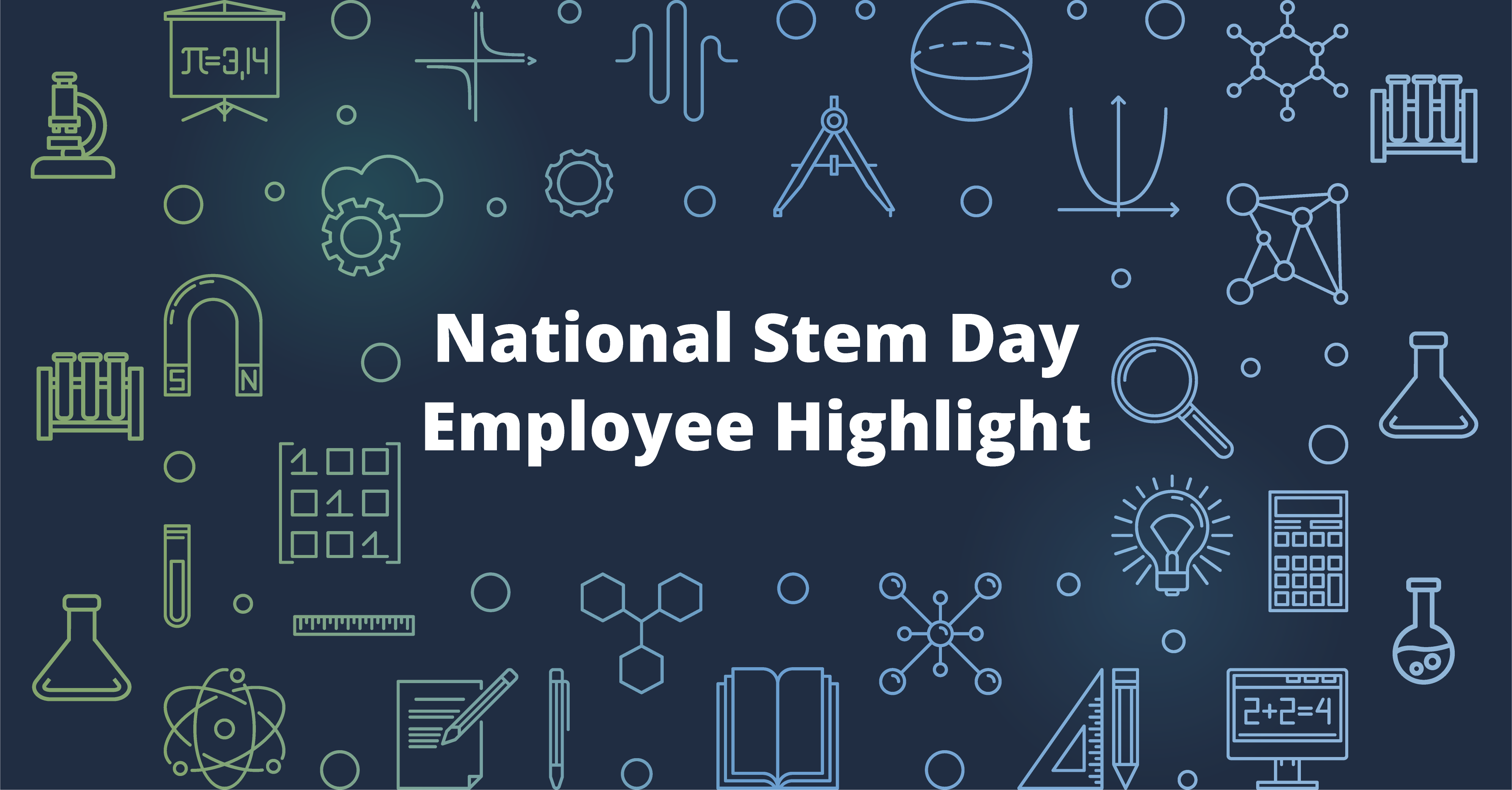
National STEM Day Employee Spotlight
Employee spotlight of Senior Lab Technician Kevin Smith and Senior Analyst Sara Lockard
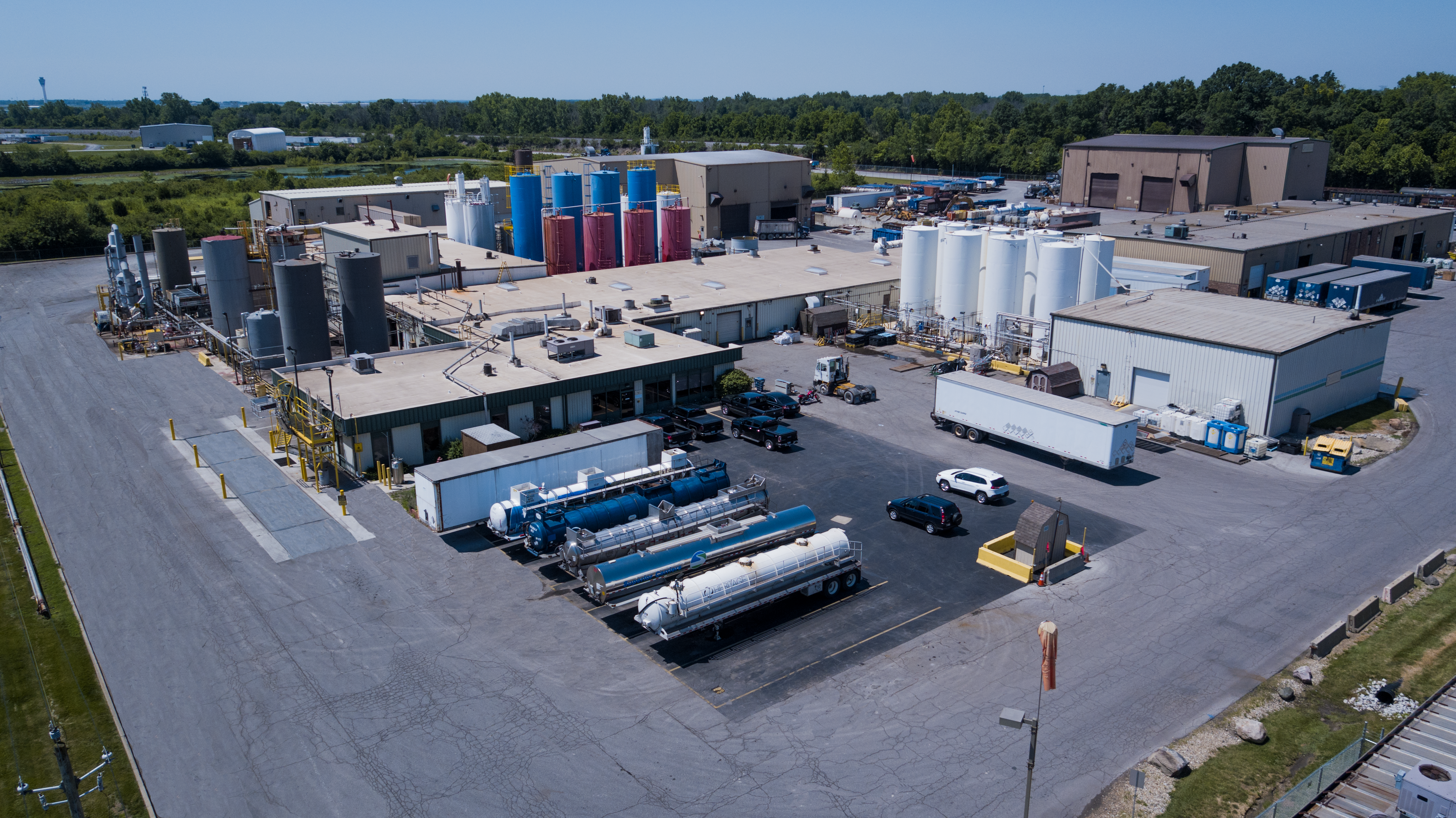
How Safety, Maintenance, and Reliability Are Intertwined
VP of Health and Safety Jim Mangas discusses the importance of plant safety, maintenance, and reliability (featured in BIC Magazine July/Aug '22)
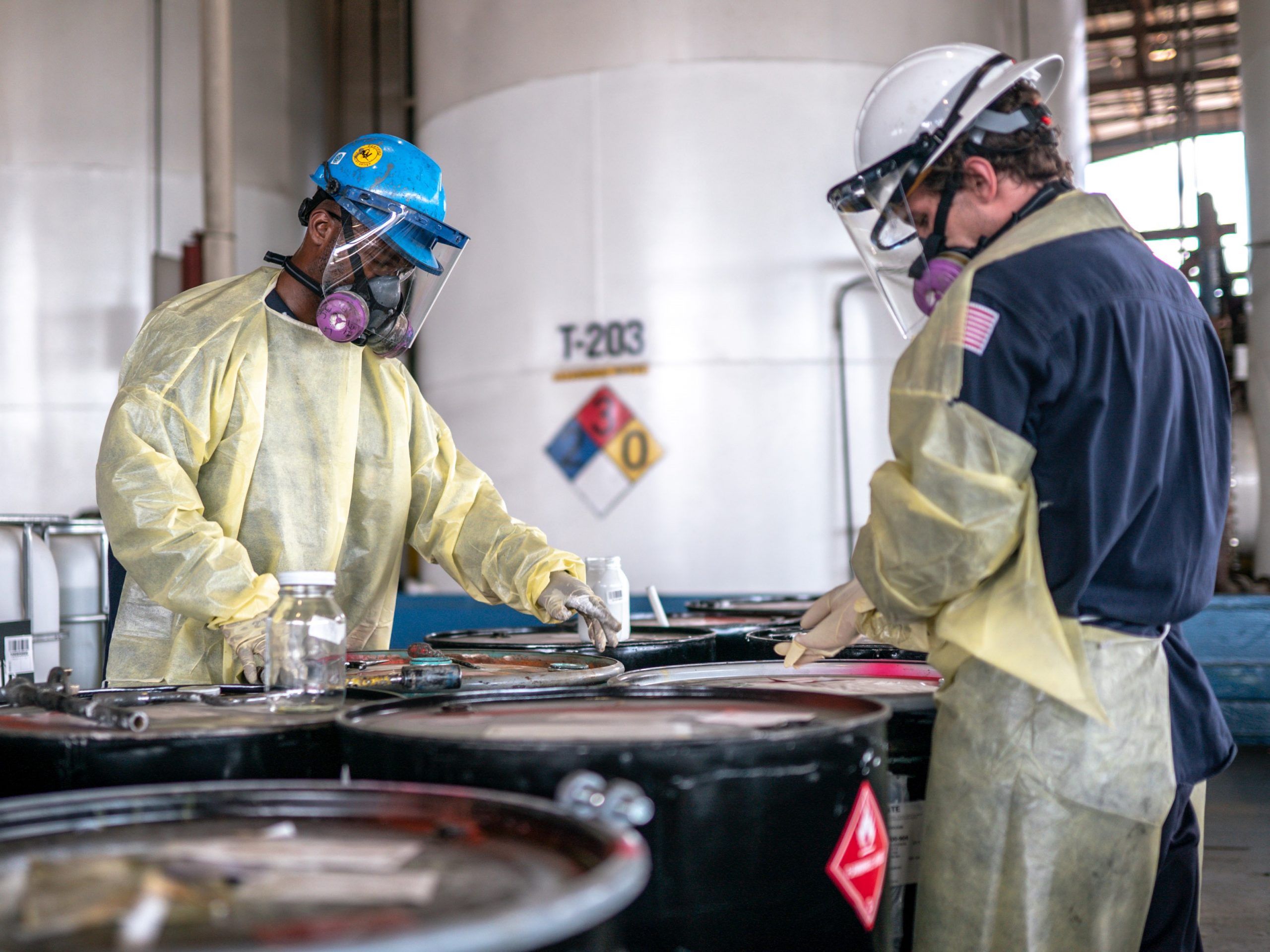
Turning Hazardous Waste into an Alternative Fuel
In this blog we walk you through the process of fuel blending, where we can turn hazardous waste materials into a viable alternative fuel source.

